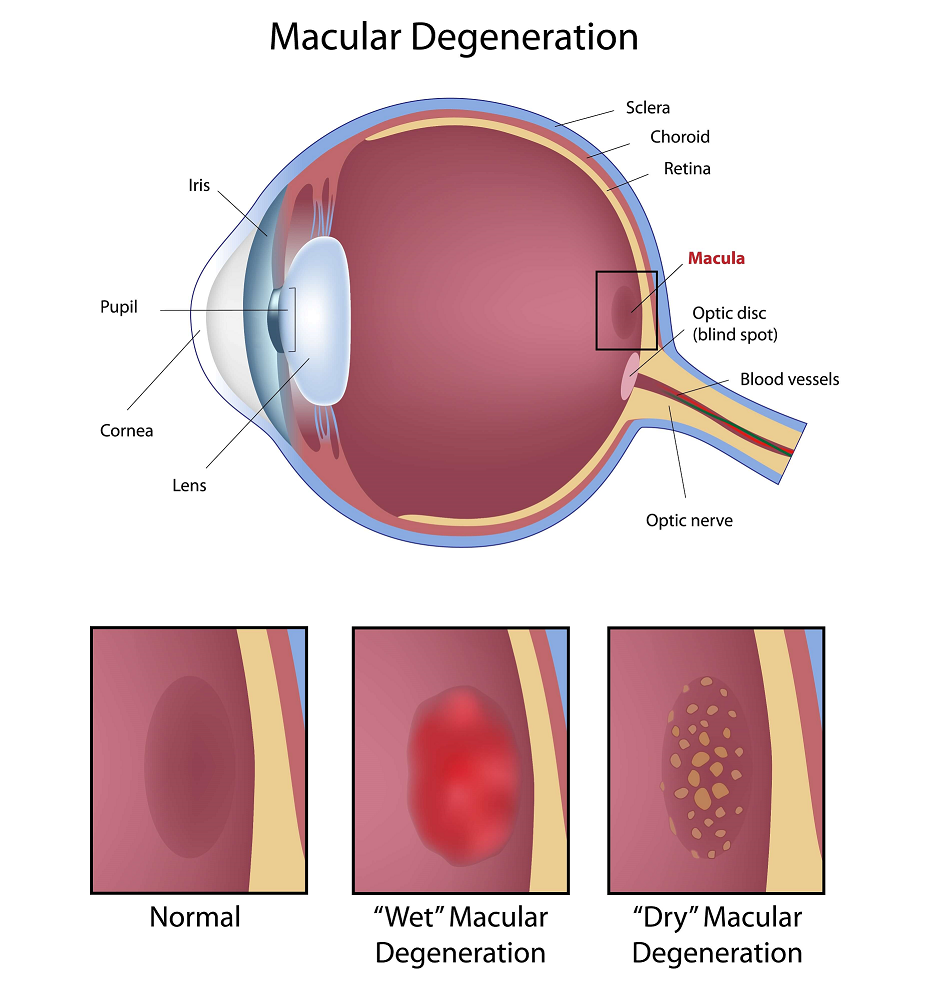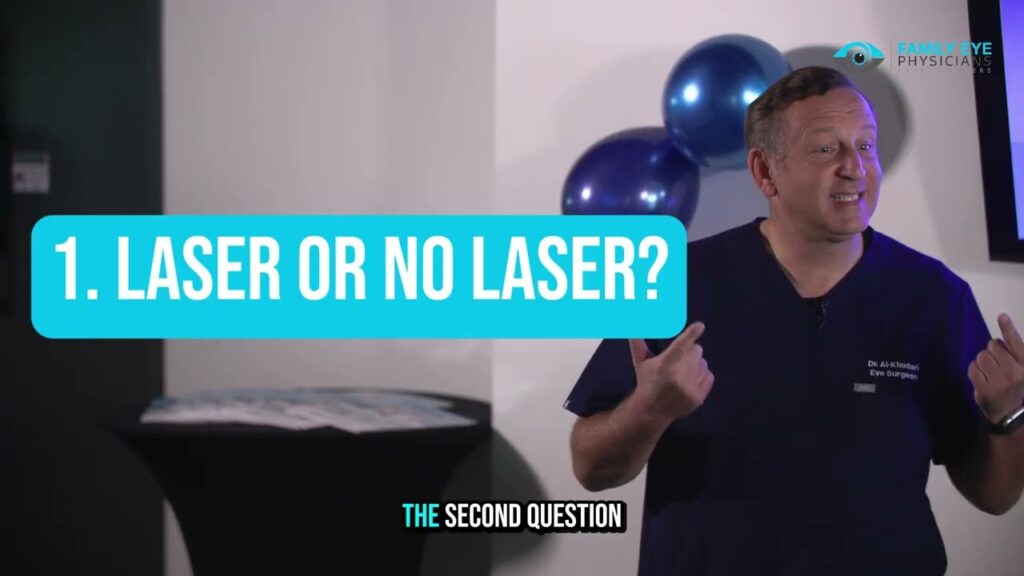
February is Age-Related Macular Degeneration and Low Vision Awareness Month. Age-Related Macular Degeneration (AMD) is the leading cause of blindness among older Americans, but new treatments have dramatically changed the course of this disease over the last 10 years, making AMD more manageable than ever before.
During AMD Awareness Month in February, the American Academy of Ophthalmology is reminding people with AMD that they can save their vision thanks to recent treatment advances, but early detection is a critical first step.
Macular degeneration is a condition that affects the macula. The macula is a small piece of tissue located in the central portion of your retina. The macula is responsible for your sharp, central vision. Macular degeneration, an age related condition, occurs when either yellowish deposits grow under the macula or blood vessels grow and leak into the eye cavity. There are two types of AMD, dry and wet. Both types of AMD can cause blind spots, but not complete blindness. Vision loss due to macular degeneration cannot be reversed.
About 85% to 90% of people with age-related macular degeneration have dry AMD. Dry AMD is liked with bits of fat and protein called drusen. They can collect under your retina — a layer of tissue at the back of your eye that processes light. No one knows where the drusen come from, but they are thought to be pieces of waste from the retina.
If you’re over the age of 50 you probably have some hard drusen in your eyes. These are normal and harmless, especially if they aren’t in your macula — the small area at the center of your retina. But soft, large, and centrally located macular drusen are not. They are the ones that are linked with losing your vision.
Drusen in early AMD are quite small. They get larger as the condition moves from early to intermediate to advanced. In advanced-stage AMD, drusen are larger and more numerous. They keep oxygen from reaching your eye.
The vision loss from dry AMD happens slowly and usually is not as severe as that from wet AMD. But dry AMD can sometimes turn into the wet form. Up to 5% of people who have dry AMD in both eyes will get wet AMD in a year, while 13% to 18% will get it in 3 years.
Wet AMD usually gets worse much more quickly than dry AMD. If you have this type, extra blood vessels start to form in your eye underneath the macula. These new vessels tend to leak blood and other fluid into your eye, which causes damage. It’s not clear exactly why the vessels form, although some experts think it may be part of an effort to get rid of the drusen.
There are treatments available that can slow or stop the progression of this disease. For more information about Age-Related Macular Degeneration (AMD), come see our retina experts here at Family Eye Physicians to see which treatments are best for you.
Family Eye Physician Locations: Buffalo Grove, Chicago, Orland Park, and Oak Lawn. Contact us online or Call Us at (708) 636-9393 today!
